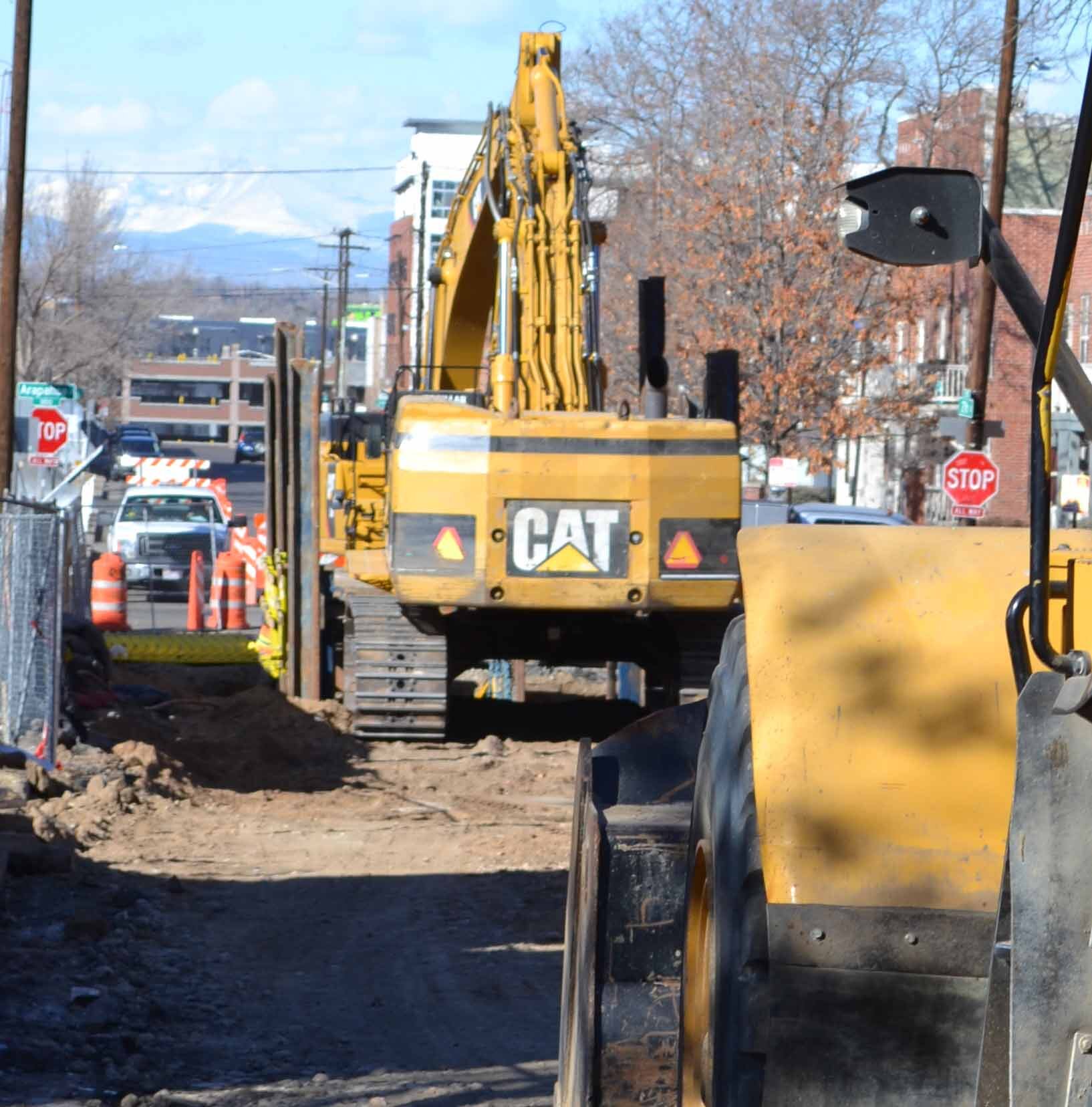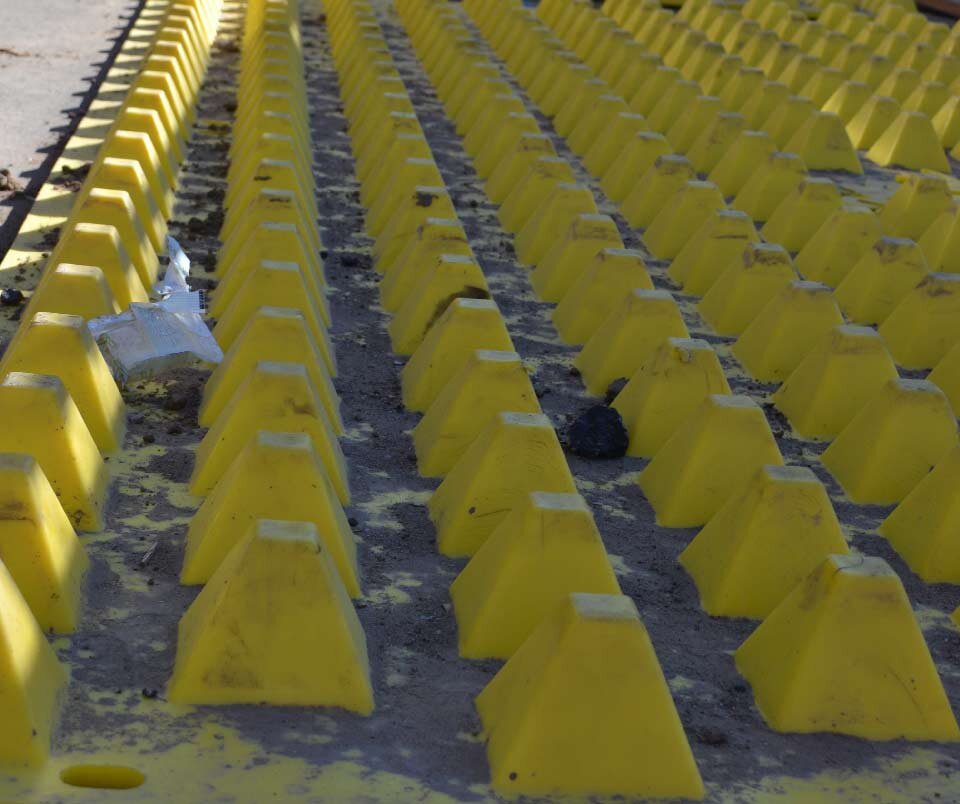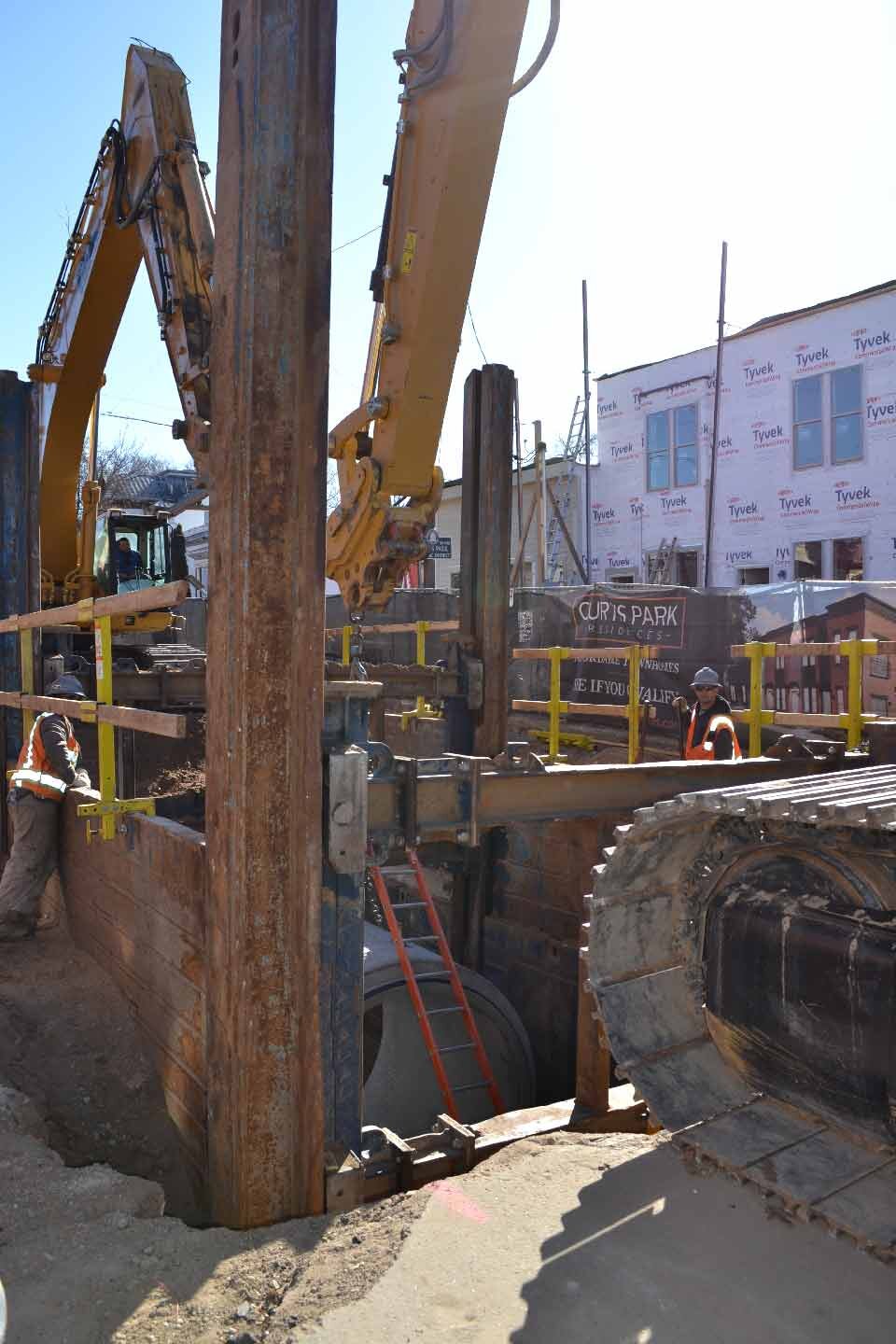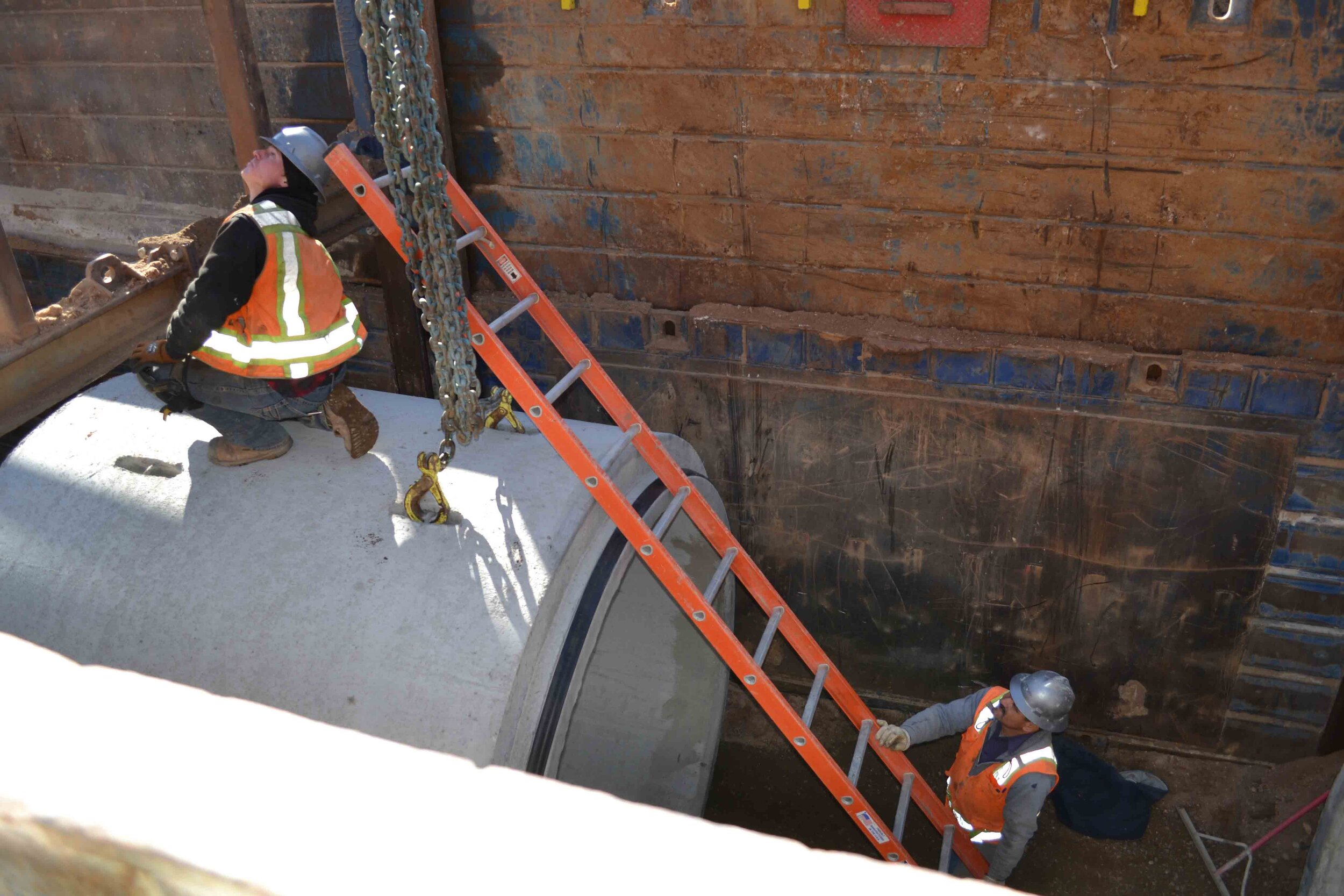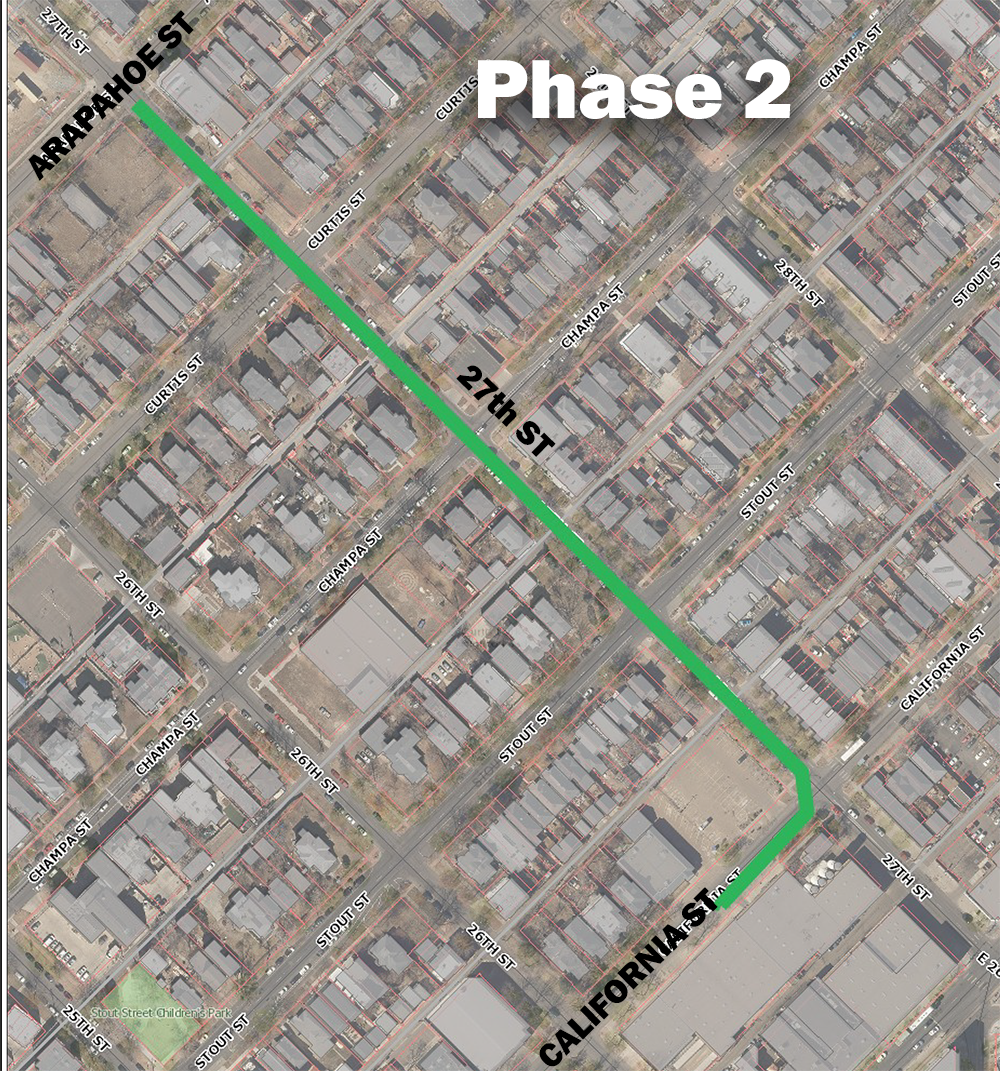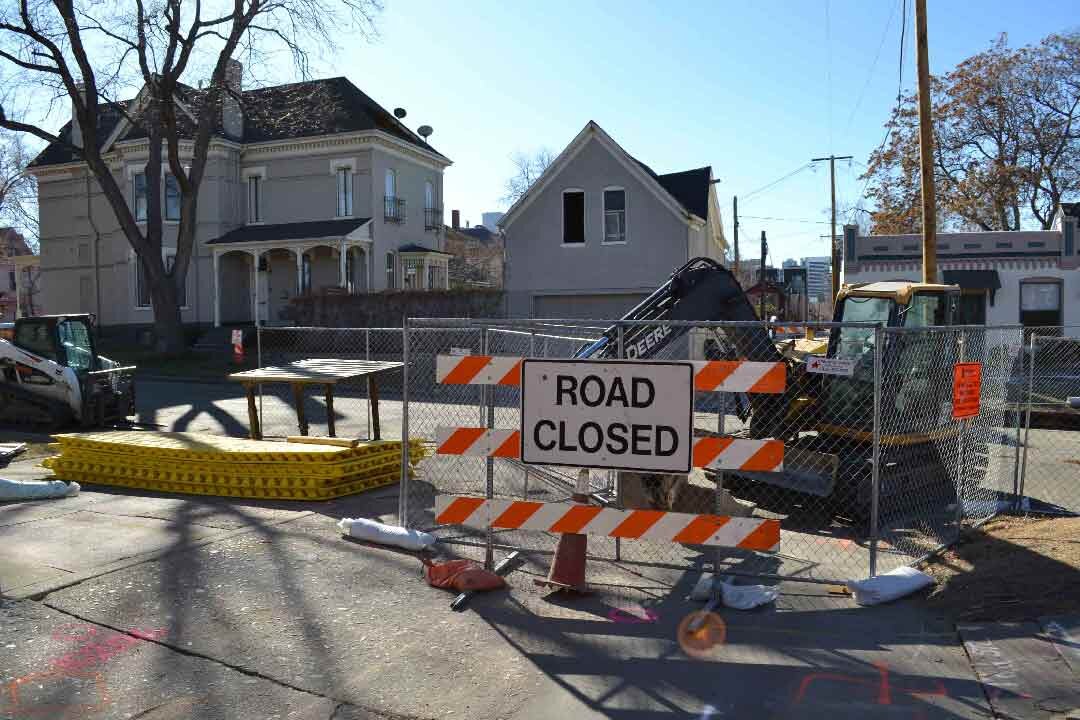27th Street Storm Drain Project
Stormwater Innovation: Denver’s 27th Street Project Combats Flooding with Advanced Construction Solutions
DENVER, CO — Beneath the bustling streets of Denver’s Five Points, Curtis Park, and RiNo Art District, an ambitious infrastructure project is addressing decades-old issues of flooding, water quality, and public safety. Known as the 27th Street Stormwater Interceptor System, this multi-phase effort is transforming urban stormwater management while incorporating innovative construction technologies to minimize environmental and community impact.
A Stormwater System in Crisis
The historic neighborhoods in central Denver are no strangers to flooding. During storms, water runoff funnels into the overburdened 36th Street Outfall, causing significant strain on the drainage system and resulting in localized flooding. Moreover, stormwater runoff compromises water quality as pollutants flow untreated into the South Platte River.
The City and County of Denver took decisive action with the 27th Street Stormwater Interceptor project, a phased initiative to modernize the region’s stormwater infrastructure. The centerpiece of this project is a new underground drainage system designed to efficiently channel stormwater to the South Platte River, alleviating pressure on existing outfalls and reducing flood risk.
The Project: Building a Resilient Future
The 27th Street Stormwater Interceptor System is a long-term investment in Denver’s infrastructure and environmental resilience. Key features include:
Upgraded drainage systems: A larger underground pipeline capable of handling increased stormwater volumes.
Improved stormwater inlets: Enhancements that allow for faster and more efficient water entry into the system.
Neighborhood revitalization: Streets affected by construction will see complete repaving and curb ramp upgrades for improved accessibility.
The project spans three phases, with Phase I, costing $6.7 million, completed in mid-2019. This phase tackled storm sewer installation near the Coors Field Parking Garage and included a large stormwater quality vault to filter debris and contaminants.
Phase II, a $5.1 million effort awarded to Concrete Works of Colorado, began in late 2019 and is nearing completion. It focuses on Basin 0062-1, running from 27th Street and Arapahoe Street to 27th Street and California Street. This phase involves the installation of large-diameter storm sewers via open cuts and associated infrastructure improvements. Phase III is still under design but promises to build on the progress achieved thus far.
Challenges on the Ground: Dust, Debris, and Trackout
Constructing a large-scale drainage pipeline in a densely populated urban area brings unique challenges. Heavy equipment, utility vehicles, and frequent material deliveries pose significant risks of trackout—the unintentional transfer of soil and debris onto public streets. Dust from construction activities also threatens the health and comfort of nearby residents.
In such a setting, traditional trackout control methods, such as stabilized entrances made of geo-fabric and aggregate, are impractical. These methods are costly, inefficient, and ill-suited for the high-traffic urban environment surrounding 27th Street.
The FODS Solution: Innovation Meets Sustainability
To mitigate these challenges, Concrete Works of Colorado turned to FODS Trackout Control Mats, a revolutionary alternative to conventional construction entrances. FODS mats, manufactured in Denver, are reusable, durable, and designed for high-impact applications. At the 27th Street project, ten FODS mats were installed across two entrances, forming a robust solution to prevent trackout and reduce dust.
Key features of FODS mats include:
Durability: Each mat can support 80 tons, ensuring performance under the weight of heavy construction vehicles.
Longevity: With a lifespan exceeding 10 years, these mats offer a cost-effective alternative to traditional methods.
Efficiency: The mats’ engineered pyramids dislodge debris from vehicle tires, trapping it at the mat's base where it remains undisturbed by subsequent traffic.
Adaptability: Designed to be compact and movable, the mats are ideal for urban construction sites with space constraints.
By connecting FODS mats with steel hardware, the project team created a seamless trackout prevention system that accommodates the daily delivery of massive concrete drainage pipes and other heavy materials.
The Impact: A Cleaner, Safer Construction Process
The use of FODS mats has been transformative for the 27th Street Stormwater Interceptor project. By preventing soil and debris from being tracked onto city streets, the mats have minimized disruptions to nearby neighborhoods and businesses. Dust reduction has also improved air quality, ensuring a healthier environment for residents in the Five Points and Curtis Park areas.
As the new drainage system nears completion, it will integrate with an existing 108-inch storm drain at the Coors Field Parking Garage. This connection will balance water flow across multiple systems, significantly reducing flood risks along the 27th and Washington Street corridors.
The Broader Vision: FODS as a Game-Changer
FODS, LLC, the Centennial-based company behind the mats, has earned a reputation for innovation across industries. From heavy civil construction, oil and gas, renewable energy infrastructure, agriculture, aviation, and even NASCAR, FODS mats have proven their value in diverse applications. By replacing stabilized construction entrances, TC-1’s, and Vehicle Tracking Pads, that are traditionally constructed using geo-fabric and aggregate entrances, FODS offers a reusable, cost-effective solution that supports sustainability and operational efficiency.
The company’s impact extends beyond construction sites. By preventing construction site trackout, FODS mats help protect water quality and preserve urban infrastructure, aligning with Denver’s broader environmental goals.
A Collaborative Effort
The success of the 27th Street Stormwater Interceptor project reflects the combined efforts of the City and County of Denver, Concrete Works of Colorado, and innovative partners like FODS. Together, they have demonstrated that forward-thinking design and technology can overcome the challenges of urban construction while prioritizing community well-being and environmental stewardship.
Looking Ahead
As Phase II of the project concludes, the City and County of Denver is already looking to the future. With Phase III in the design, engineering, and environmental study stages, the comprehensive stormwater system promises to bring lasting benefits to some of the city’s most historic neighborhoods. By addressing flooding, improving water quality, and integrating modern technologies like FODS mats, Denver is setting a precedent for sustainable urban infrastructure.
FODS Reusable Construction Entrance is 12 feet wide and 7 feet long in the direction of travel. FODS mats contain pyramids that are specifically engineered to spread tire lugs, causing debris to fall to the base of the mats where it remains undisturbed by subsequent vehicles. FODS mats prevent track out from leaving any construction site.
About FODS:
FODS, LLC, based in Centennial, Colorado, manufactures reusable trackout control mats that offer an innovative solution for preventing soil and debris from leaving construction sites. FODS serves a variety of industries, including construction, mining, and utilities, providing durable and sustainable alternatives to traditional methods.
To learn more, visit www.getfods.com or contact FODS at 844-200-3637 or via email at info@getfods.com.

